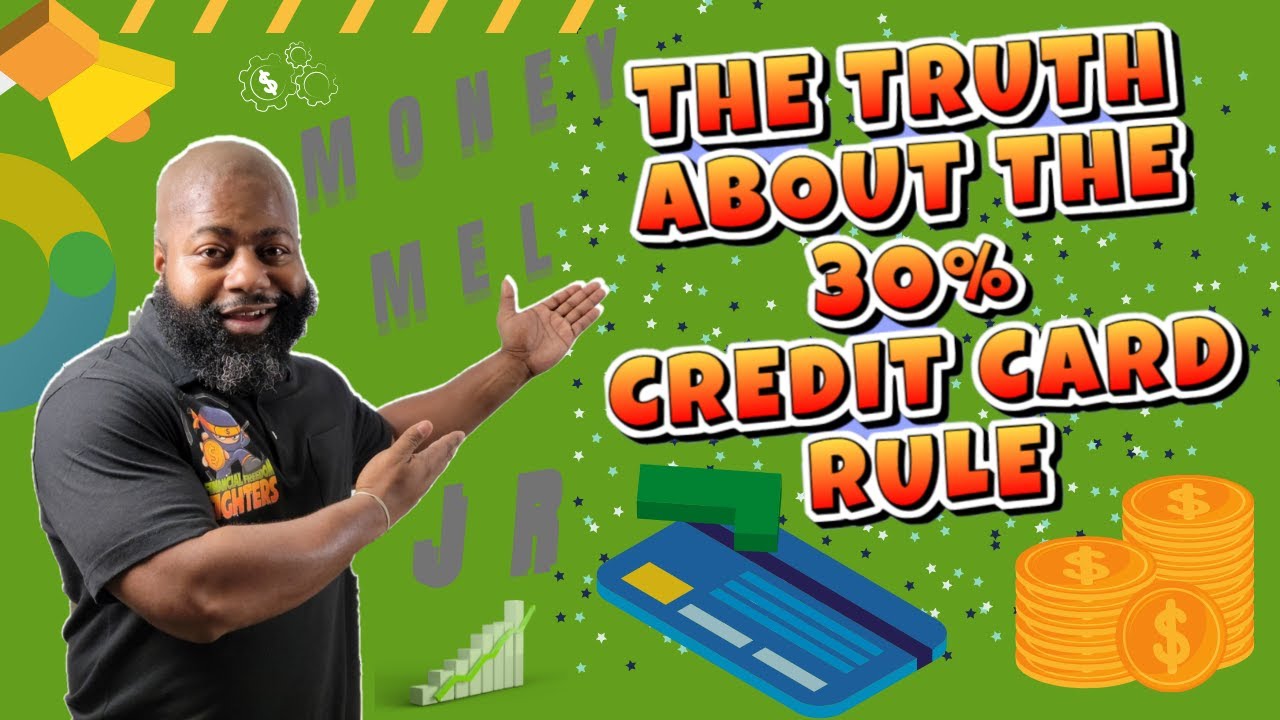4 Credit Card Mistakes You Might Not Know You're Making
Summary
TLDRThis video addresses common credit card myths that can negatively impact your financial health. It highlights four key mistakes: juggling too many cards, carrying small balances, chasing rewards while in debt, and choosing cards based on trends rather than functionality. The advice encourages viewers to focus on managing their credit wisely by paying bills in full, prioritizing debt repayment, and selecting cards that provide real value. It also emphasizes the importance of avoiding popular myths that can hurt your credit score and offers a practical tip for getting late fees waived. The video is presented by Sarah Ratner, a personal finance expert.
Takeaways
- 😀 Avoid juggling too many credit cards; it's not about the number of cards, but how well you manage them.
- 😀 Missing payments or having too many cards can negatively impact your credit score.
- 😀 You don’t need to carry a balance on your credit card to improve your credit score—paying in full each month is better.
- 😀 Never pay interest just for the sake of your credit score—pay off balances to save money.
- 😀 If you're paying off credit card debt, focus on eliminating that debt before chasing rewards.
- 😀 Interest on existing debt often outweighs the value of credit card rewards.
- 😀 Debt repayment methods like the debt snowball or debt avalanche can help you organize and pay off debt efficiently.
- 😀 Don’t choose credit cards based on trends or the card’s ‘cool’ factor; practicality matters more.
- 😀 Look for credit cards with rewards that match your spending habits, and those with low or no annual fees.
- 😀 Your credit card doesn’t need to be a status symbol; it needs to work for you.
- 😀 If you miss a payment, contact your card issuer—they may waive the late fee, especially if it’s your first missed payment.
Q & A
What is one common myth about credit cards that people believe?
-One common myth is that carrying a small balance from month to month helps raise your credit score. However, paying off your balance in full each month without carrying debt will improve your credit score without incurring interest.
How many credit cards can a person manage effectively?
-There is no set number of credit cards you should have; what matters is how well you manage them. Having multiple cards is fine as long as you pay your bills on time and avoid debt accumulation.
What happens if you miss payments on your credit cards regularly?
-Missing payments regularly can significantly damage your credit score, especially if the payment is more than 30 days late.
What should you do if you have credit cards that are not being used?
-If you have credit cards that aren't being used, it’s important to either close them or keep them active by making occasional purchases to avoid having the issuer close them for inactivity, which can hurt your credit score.
What is the issue with paying interest on credit card balances to improve your credit score?
-Paying interest on a balance in hopes of improving your credit score is unnecessary. As long as you pay your bills on time each month, you will achieve the same credit score improvement without paying interest.
What should be your priority if you have existing credit card debt?
-If you have credit card debt, your primary focus should be paying it off as soon as possible. Once you're debt-free, you can then look into cards that offer rewards.
How can someone organize their debt repayment when they owe money on multiple credit cards?
-Debt repayment methods like the debt snowball or debt avalanche strategies can help you stay organized and pay off multiple debts systematically.
Why is it not a good idea to get a credit card because it's trendy?
-Getting a credit card just because it’s trendy, like a metal card or one that’s popular with friends, may not be the best choice. It's more important to select a card that suits your financial needs, offering good rewards and low fees.
What should you look for in a credit card if status is not important?
-When status is not a concern, you should look for a credit card that offers rewards where you spend the most, has a reasonable annual fee, or ideally, no fee, and provides good value overall.
What can you do if you accidentally miss a credit card payment and are charged a late fee?
-If you miss a payment and are charged a late fee, you can call the credit card issuer. In many cases, especially if it's your first missed payment, they will waive the fee.
Outlines

このセクションは有料ユーザー限定です。 アクセスするには、アップグレードをお願いします。
今すぐアップグレードMindmap

このセクションは有料ユーザー限定です。 アクセスするには、アップグレードをお願いします。
今すぐアップグレードKeywords

このセクションは有料ユーザー限定です。 アクセスするには、アップグレードをお願いします。
今すぐアップグレードHighlights

このセクションは有料ユーザー限定です。 アクセスするには、アップグレードをお願いします。
今すぐアップグレードTranscripts

このセクションは有料ユーザー限定です。 アクセスするには、アップグレードをお願いします。
今すぐアップグレード関連動画をさらに表示

15 Financial Myths That Keep You From Getting Ahead

Why YOUR Credit Cards are not getting Approved? || Every Paisa Matters

You May Be Getting the 30% Credit Utilization Rule Wrong - How it Works & How to Improve It

क्रेडिट कार्ड बिल भरण्यासाठी सर्वोत्तम दिवस | Best Day to Pay Credit Card Bill for 800+ Credit Score

Why Dave Ramsey Is WRONG About Credit Cards

How To Get A Credit Card
5.0 / 5 (0 votes)
